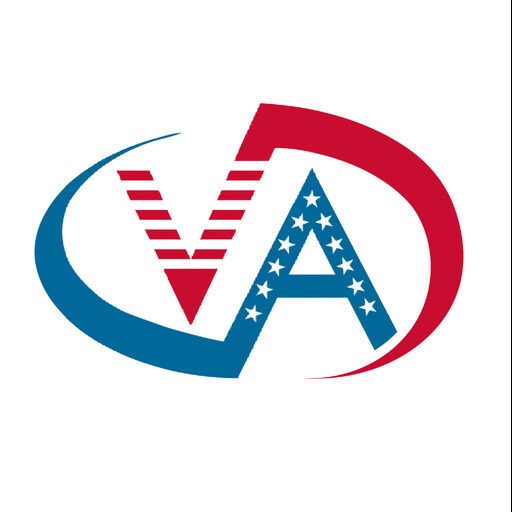Dealing with debt can be a significant source of stress, especially for Veterans and Military members who often face unique financial challenges, including frequent relocations, transitions to civilian life, or deployments.
When an old debt lands with a collection agency, it can severely impact your credit score, making it harder to secure loans for a home or car, or even affect employment opportunities.
One strategy that some individuals attempt to use to mitigate this damage is negotiating a “pay for delete” agreement.
This article will guide Veterans through the intricacies of “pay for delete,” explaining what it is, how to approach it, and the critical factors to consider to protect your financial future.
Understanding Collection Accounts and Credit Reports
When you fail to pay a debt, the original creditor may eventually "charge off" the account and sell it to a third-party collection agency for a fraction of the original amount. This collection account then appears on your credit report, often alongside the original charged-off account. These negative marks can remain on your credit report for up to seven years from the date of the original delinquency, regardless of whether you pay them. They significantly lower your credit score and signal to future lenders that you pose a higher credit risk.
For Veterans, a strong credit score is vital, particularly when utilizing VA loan benefits for homeownership or accessing other financial services tailored to the Military community. A collection account, even a small one, can stand in the way of achieving these goals. To learn more about navigating these challenges, you can find detailed information on VA loans with bad credit.
The "Pay for Delete" Strategy Explained
A "pay for delete" (PFD) is an informal agreement you try to strike with a collection agency. In this arrangement, you agree to pay off a portion or the full amount of the debt, and in return, the collection agency agrees to remove the derogatory entry from your credit report entirely, as if it never existed. This is different from merely paying off a collection account, which typically results in the entry being updated to "paid collection" but still remaining on your report for the full seven years.
The appeal of PFD is obvious: a complete removal of the negative mark could lead to a more significant and immediate boost to your credit score than simply paying it. However, it's a strategy that requires careful execution and understanding of its limitations.
Is "Pay for Delete" Legal? (And Why it's a Gray Area)
This is where "pay for delete" enters a somewhat ambiguous territory. Under the Fair Credit Reporting Act (FCRA), credit bureaus are required to report accurate information. If a debt was legitimately owed and went to collections, deleting that entry would technically mean removing accurate historical data. Credit bureaus (Experian, Equifax, TransUnion) generally discourage "pay for delete" arrangements because they undermine the accuracy and integrity of credit reports.
However, while credit bureaus discourage it, there's no federal law explicitly prohibiting a collection agency from requesting the deletion of an account from your credit report. Some collection agencies, especially smaller ones or those that purchased the debt for very little, may be willing to agree to a PFD because their primary goal is to recover as much money as possible. Getting some payment, even if it means removing the entry, might be more appealing than no payment at all.
It's crucial for Veterans to understand that there is no guarantee a collection agency will agree to a "pay for delete," even if you offer to pay in full. Many larger agencies have policies against it or simply refuse to engage in such agreements.
When "Pay for Delete" Might Be a Good Option for Veterans
For Veterans, considering a "pay for delete" can be particularly impactful in certain situations:
- Approaching a Major Loan Application: If applying for a VA mortgage, a collection account is a hurdle. A successful PFD could clear your report quickly.
- Few Other Negative Marks: If the collection is one of few negative marks, its removal could significantly improve your score.
- Older, Smaller Debts: Agencies may be more open to PFD for older, smaller debts they've struggled to collect.
- Manual Underwriting: For VA loans, manual underwriting benefits from a clean credit report, even via PFD.
It's worth noting that newer credit scoring models like FICO 9 and VantageScore 3.0 tend to ignore paid collection accounts when calculating your score, so paying off the debt (even without deletion) can still help with these models. However, older FICO models (like FICO 8, which is widely used) still consider paid collections, making PFD potentially more impactful for those older models. This strategy can be a key part of how to improve credit for a VA loan.
Steps to Negotiate a "Pay for Delete" for Veterans
If you decide to pursue a "pay for delete," follow these steps meticulously to maximize your chances of success and protect yourself:
1. Verify the Debt (Crucial First Step)
Before you even consider offering payment, you must verify the debt. You have rights under the Fair Debt Collection Practices Act (FDCPA). Within five days of initial contact, a debt collector must send you a written validation notice detailing the amount of the debt, the name of the creditor, and a statement of your right to dispute the debt within 30 days. If you do not receive this, send a debt validation letter (certified mail, return receipt requested) demanding proof of the debt and the collector's right to collect it. Do not acknowledge or pay anything until the debt is validated. The Consumer Financial Protection Bureau (CFPB) offers resources on your debt collection rights.
2. Assess Your Financial Situation
Determine how much you can realistically afford to pay, either as a lump sum or through a short payment plan. Collection agencies often buy debts for pennies on the dollar (e.g., 5-10% of the original amount), so they have significant room to negotiate. Starting with an offer of 25-50% of the original debt is common, but you can start lower. This is similar to strategies for settling charged-off credit cards for Veterans.
3. Initiate Contact and Make Your Offer
Contact the collection agency by mail, not by phone. A phone call leaves no paper trail. Send a written offer (preferably certified mail, return receipt requested) clearly stating your terms. Be polite, professional, and do not admit responsibility for the debt (you are offering a settlement, not admitting fault). Clearly state that your offer is contingent on the complete deletion of the account from all three major credit bureaus (Experian, Equifax, TransUnion). This specific negotiation for removal is the core of negotiating pay for delete with collection agencies for Veterans.
4. Get Everything in Writing (Absolutely Essential)
This is the most critical step. If the collection agency agrees to your "pay for delete" offer, insist that they send you a written agreement on their company letterhead. This document must explicitly state that in exchange for your payment (specifying the amount and date), they agree to delete the account from all major credit reporting agencies. Do NOT make any payment until you have this written agreement in hand. Verbal agreements are worthless and legally unenforceable.
5. Make the Payment (Only After Written Agreement)
Once you have the signed "pay for delete" agreement, make your payment exactly as agreed upon. Use a traceable method like a cashier's check or money order, and keep a record of the transaction. Avoid giving them direct access to your bank account if possible.
6. Monitor Your Credit Report
After making the payment, allow 30-45 days for the collection agency to act. Then, obtain free copies of your credit reports from all three major bureaus at AnnualCreditReport.com. Check to ensure the collection account has been completely removed. If it hasn't, contact the collection agency with a copy of your written agreement and remind them of their obligation. If they fail to comply, you may need to dispute the entry with the credit bureaus, providing your written "pay for delete" agreement as evidence. For potential immediate updates, look into rapid rescores for VA mortgage credit.
What to Include in a "Pay for Delete" Letter (Sample Structure)
Your "pay for delete" letter should be clear, concise, and professional. Here’s a basic structure for Veterans to follow:
[Your Name]
[Your Address]
[Your City, State, ZIP]
[Your Phone Number]
[Date]
[Collection Agency Name]
[Collection Agency Address]
[Collection Agency City, State, ZIP]
<b>Subject: Offer of Settlement and Agreement for Deletion - Account No. [Your Account Number with Agency]</b>
Dear [Collection Agency Name or Contact Person, if known],
This letter is in reference to the alleged debt you are attempting to collect, Account Number [Your Account Number with Agency], originally from [Original Creditor Name], with an alleged balance of $[Original Debt Amount]. Please note that this letter is not an acknowledgment of debt, but merely an offer of settlement.
Without admitting any liability and solely for the purpose of amicable resolution, I hereby offer to pay the amount of $[Your Proposed Settlement Amount] as a full and final settlement of the above-referenced account. This offer is contingent upon your agreement to completely delete all trade line reporting of this account from my credit reports with Experian, Equifax, and TransUnion within 15 business days of receipt of payment.
If you agree to these terms, please provide a written letter on your official company letterhead, explicitly stating your agreement to delete this account from all credit reporting agencies upon receipt of the settlement payment. This written agreement must be received by me before any payment will be made.
Upon receipt of your written agreement, I will remit payment of $[Your Proposed Settlement Amount] by [Method of Payment, e.g., cashier's check, money order] within [Number] business days.
If I do not receive a written agreement from your agency by [Date – allow 10-15 business days for response], this offer will be considered withdrawn. This offer is valid only for the full and complete deletion of this account from my credit reports.
Thank you for your prompt attention to this matter.
Sincerely,
[Your Signature]
[Your Typed Name]
[Your Account Number with Agency]
The Three Major Credit Bureau's Mailing Addresses
1. Experian
Mailing Address:
Experian
P.O. Box 4500
Allen, TX 75013
2. TransUnion
Mailing Address:
TransUnion Consumer Solutions
P.O. Box 2000
Chester, PA 19016-2000
3. Equifax
Mailing Address:
Equifax Information Services LLC
P.O. Box 740256
Atlanta, GA 30374-0256
Potential Risks and Downsides for Veterans
While "pay for delete" sounds appealing, Veterans should be aware of the risks:
- No Guarantee of Success: Collection agencies are not obligated to agree to a PFD.
- Verbal Agreements are Useless: Relying on a verbal promise can leave you without the deletion you wanted.
- Debt Validation First: Never offer payment before validating the debt; you might not even owe it.
- Restarting the Statute of Limitations: Payment on old debt can "re-age" it, potentially restarting the time a collector can sue you.
- Impact on Credit Score Not Guaranteed: Your credit score is complex; other factors like payment history play a huge role.
Alternatives to "Pay for Delete" for Veterans
If "pay for delete" isn't an option or doesn't work out, Veterans have other strategies for dealing with collections:
- Debt Validation: If the collector cannot validate the debt, they must cease collection and remove it.
- Negotiate a Payment Plan or Settlement: Even without deletion, a "paid collection" is better than an "unpaid collection."
- Dispute Inaccurate Information: If the debt information is incorrect, dispute it directly with the credit bureaus.
- Wait it Out: If the debt is old and nearing the seven-year mark, letting it age off naturally might be strategic.
- Credit Counseling: Non-profit credit counseling agencies, like those with the National Foundation for Credit Counseling (NFCC), offer objective advice.
- Military-Specific Resources: Organizations like the Veterans of Foreign Wars (VFW) offer financial counseling and assistance programs.
Expanding Your Home Loan Options
As Veterans work to improve their credit by addressing collections, it's important to understand how their efforts can impact future home loan opportunities. Your credit score directly impacts VA loan rates, so a stronger profile generally leads to better terms. While there is no official minimum credit score set by the VA, many lenders have their own requirements. For example, some lenders may look for a VA home loan with a 580 credit score, while others might prefer higher. Understanding the minimum credit score needed for VA loans by specific lenders can help you set realistic goals for credit improvement.
Beyond credit, lenders assess your overall financial health, including income and debt. It's beneficial to know how to calculate your DTI ratio and understand what constitutes qualifying income for a VA loan, including how lenders may gross up certain VA benefits. If you're currently serving, learn about using military pay for VA loan qualification. Lenders will also consider factors like VA mortgage cash reserves for Veterans.
The VA offers both automated underwriting system reviews and, in some cases, manual underwriting for VA loans, which can provide flexibility for unique financial situations. If a VA loan isn't immediately feasible, exploring an FHA alternative to a VA loan for Veterans could be a viable path to homeownership. Eventually, you might even consider options to refinance FHA to VA loan for Veterans, or utilize a non-occupying co-borrower FHA loan for added support. The key is to demonstrate financial responsibility, which starts with addressing past debts.
Conclusion: Empowering Veterans in Debt Negotiation
Navigating debt collection can be intimidating, but Veterans and Military members have rights and options. While "pay for delete" can be a powerful tool for credit repair, it's not a guaranteed solution and requires careful strategy and strict adherence to documentation. Always prioritize validating the debt and obtaining a written agreement before making any payment. By understanding your rights, assessing your financial situation, and meticulously documenting all interactions, you can empower yourself to negotiate effectively and take significant steps toward improving your credit health and achieving your financial goals as a deserving Veteran.
Frequently Asked Questions About "Pay for Delete" for Veterans
What is "pay for delete" for Veterans?
"Pay for delete" is an agreement where a Veteran pays a collection agency to completely remove a negative entry from their credit report.
Is "pay for delete" guaranteed to work for Veterans?
No, it's not guaranteed. Agencies aren't obligated to delete accurate information, and many have policies against it.
What should a Veteran do before negotiating a "pay for delete"?
Always verify the debt in writing with the collection agency, ensuring its legitimacy and accuracy, before offering payment.
Why is getting a written agreement so important for Veterans?
A written agreement is essential because verbal promises are not legally binding. Without it, there's no proof of the deletion promise.
How long does a collection account stay on a Veteran's credit report if not deleted?
A collection account, paid or unpaid, typically stays on a Veteran's credit report for up to seven years from original delinquency.
Can paying an old debt restart the statute of limitations for Veterans?
Yes, in some states, payment on old debt can "re-age" it, potentially restarting the time a collector can sue you.
What if the collection agency refuses a "pay for delete" offer to a Veteran?
If refused, you can still negotiate a settlement or payment plan. A "paid" status is generally better than "unpaid."
Are there specific laws that protect Military members and Veterans from debt collectors?
Yes, the Servicemembers Civil Relief Act (SCRA) offers specific protections for active-duty Military members, in addition to the FDCPA.
Where can Veterans find help with debt and credit repair?
Veterans can find help through non-profit credit counseling agencies, Military aid societies, and the CFPB.
Should a Veteran pay the full amount of the debt to get a "pay for delete"?
Not necessarily. Agencies may accept a negotiated lump-sum payment (e.g., 25-50% of original debt) for deletion.

The VA Loan Network Editorial Team is comprised of dedicated mortgage specialists and financial writers committed to providing veterans and service members with accurate, up-to-date information on VA loan benefits, eligibility, and the home-buying process.








